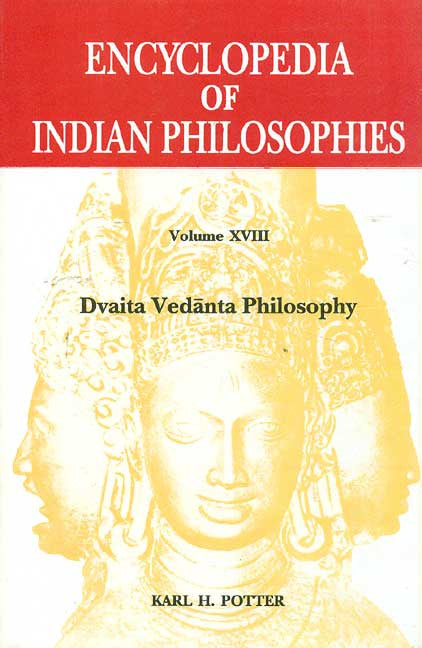Encyclopedia of Indian Philosophies, Vol.18: Dvaita Vedanta Philosophy
![]() 100% Genuine New Books
100% Genuine New Books
![]() Fast Shipping with Tracking Number
Fast Shipping with Tracking Number
Secure Payments via UPI, Cards & Wallets
![]() Trusted Support & Easy Returns
Trusted Support & Easy Returns
Encyclopedia of Indian Philosophies, Vol.18: Dvaita Vedanta Philosophy - Hardcover is backordered and will ship as soon as it is back in stock.
ISBN : 9788120836464, 8120836464
Year of Publication : 2015
Edition : 1st
No. of Pages : 610
Language : English
Condition : New
Publisher: Motilal Banarsidass Publishing House
Free shipping on orders over Rs. 249
Free shipping on orders over Rs. 249
We offer free shipping on orders above Rs. 249 in India. For orders below this threshold, a nominal shipping fee may apply, which will be clearly indicated during the checkout process.
How long will it take to receive my order?
How long will it take to receive my order?
The delivery time varies depending on your location. Generally, orders are processed and shipped within 1-3 business days. Once shipped, you can track and expect your order to arrive within 3-7 business days (the duration may vary depending on your location). For more information, please refer to our shipping policy.
Chat with a Real Person
Chat with a Real Person
WhatsApp chat is dedicated to assisting with after-sales queries regarding delivery, returns, and payments. Click below to initiate chat with us on WhatsApp:
[Bookstaa WhatsApp Chat].
For all other inquiries, please visit our customer support page or email us at support@bookstaa.com.
Couldn't load pickup availability
Description
Description
Madhva, the founding figure of the Dvaita system of philosophy, states the major tenets of his philosophical system in a nutshell in his Mahabharata-tatparyanirnaya 1.70-71: "The flow of the world is real together with its five fold difference:
1. The difference between God and jivas (i.e., the individual selves);
2. The mutual differences(s) among the jivas;
3. The difference(s) between God and jada (i.e., inert) object;
4. The mutual differences(s) among the jada objects;
5. The difference between the jada objects and the individual selves.
These differences are permanent and will continue forever. These differences will continue ever after liberation. The hierarchy of the jivas will also continue even after liberation."
Madhva's is the first of those systems labeled "Vedanta" to espouse such a sweeping set of distinct kinds of real entities. Notably, the Advaita system of Samkara denied any differences at all, labeling all such distinctions at best anirvacaniya, impossible to speak of consistently. Madhva's passage, quoted above, states his disagreement with such a position in as extreme terms as is possible. Besides forming an important school of thought in its own right, Madhva provided the backdrop to the "modern" period of Indian thought, in which even the importance of liberation and the basic assumptions concerning it came into question.
Review(s)
About the Author(s)
Karl H. Potter is professor of Philosophy and South Asian Studies at the University of Washington is Seattle, and is General Editor of the Encyclopedia of Indian Philosophies. Series containing 28 volumes.
About the Publisher

Motilal Banarsidass Publishing House (MLBD)
Motilal Banarsidass Publishing House, popularly known as MLBD, is one of the oldest and most prestigious publishing houses in India, established in 1903.
With over a century of legacy, MLBD has been at the forefront of publishing scholarly works in the fields of Indology, Sanskrit, philosophy, religion, spirituality, yoga, Buddhism, and Jainism.
Renowned for its authenticity and academic rigour, MLBD's books are trusted by researchers, scholars, and readers across the globe.
With more than 5,000 titles in circulation, MLBD continues to uphold its commitment to preserving and promoting India’s rich cultural and philosophical heritage.
Bookstaa is an authorized distributor of MLBD books, ensuring 100% genuine and original publications for our readers.

